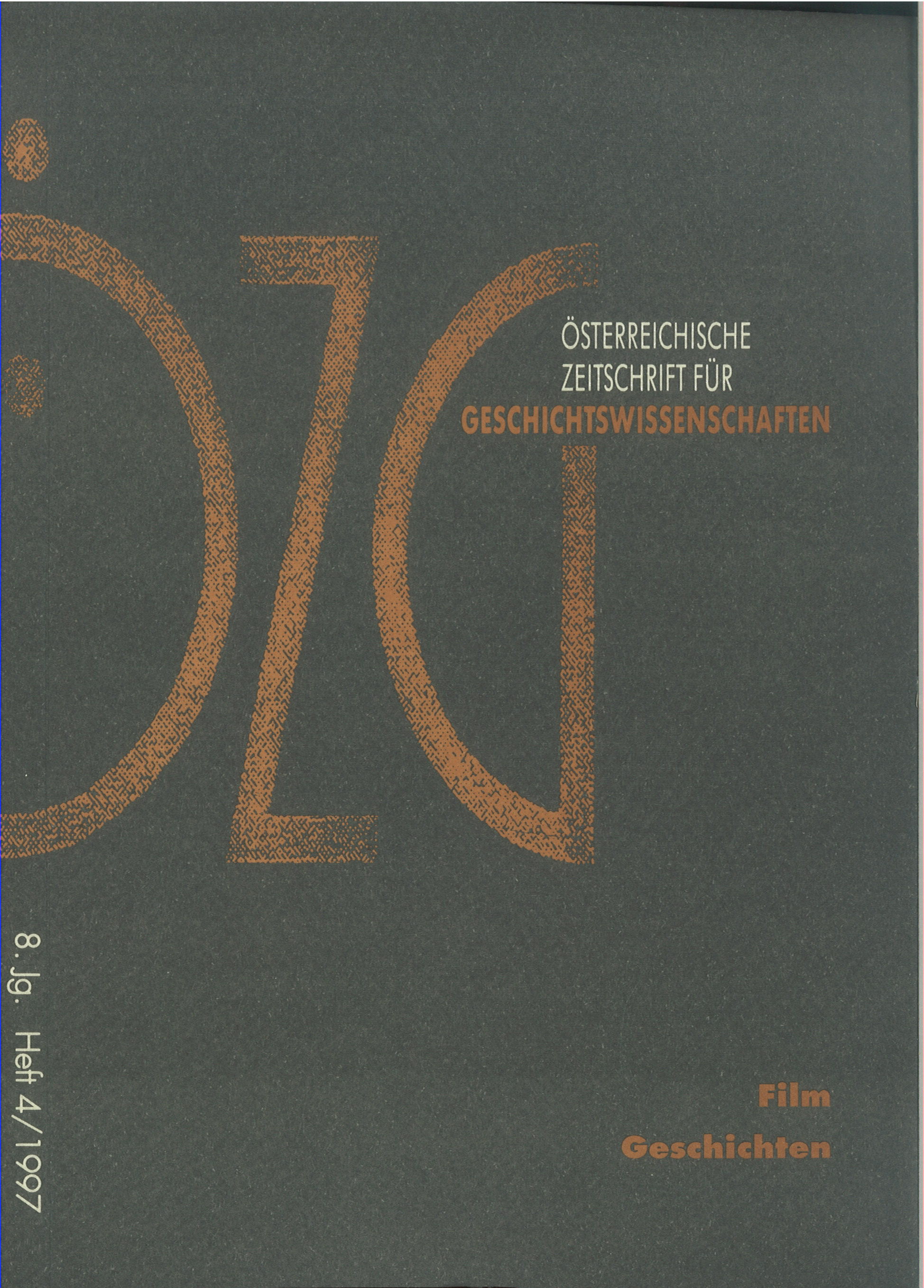Kino für Historiker
DOI:
https://doi.org/10.25365/oezg-1997-8-4-2Abstract
The article sets out with a methodological founding for a semio-historical analysis of the film La Marseillaise by Jean Renoir. This argument for a combination of the approaches of film-history and film-analysis favours a certain type of research, which seeks to locate those means and techniques, which actually convey information and emotion to the viewer, without neglecting the genesis of the film and its cultural context. lt is exactly the falseness, or rather the constructedness of significant fictions which this approach is interested in when dealing with filmed history of a kind which dothes events in myths. The article demonstrates, that a socalled historical film is always a product of its time. In the weekly French cinema newsreels from the 1930s we encounter the same kind of topics as in La Marseillaise: the enthusiasm of crowds, the challenging of the powers that be, the elan to defend the threatened border. In the structure of the narrative Jean Renoir anticipated Francois Furets claim, that it was not the people which seized the power, but that the monarchy was disintegrating from within. In a correspondingly significant manner the time/space organisation of the film consistingly separates the place and role of power on the one, and of the people on the other side.


